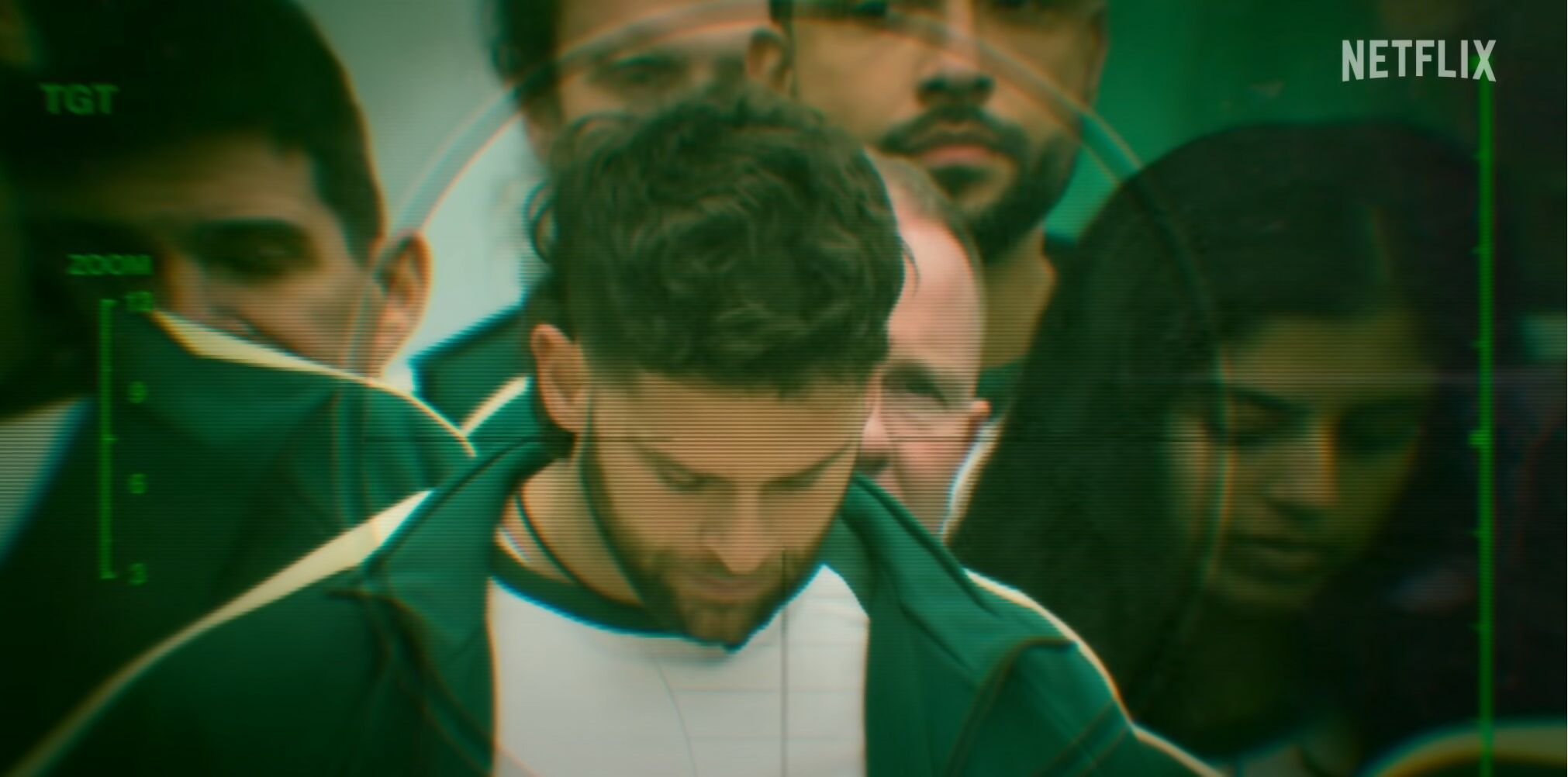
Squid Game: The Challenge is one of Netflix’s big autumn hits. But doesn’t it miss the point of the fictional show on which it’s based?
Bathed in sickly light, a wan, anxious-looking contestant frantically licks the back of what looks like an outsized biscuit. One quick cut later, and we see another contestant frantically scratching and jabbing at a similar-looking object with a needle.
This is one of several challenges in Squid Game: The Challenge, Netflix’s reality TV adaptation of its own Korean dystopian thriller series of the same name. In it, hundreds of contestants vie to become the one person who’ll win a prize pot of $4.56m. Those contestants are gradually whittled down through the course of the series, either by failing at challenges – like the one described above, which involves removing a shape from a piece of honeycomb candy without breaking it – or through being randomly eliminated by rivals.
In a psychologically brutal twist, each player is essentially worth $10,000 each, and so every time one of them is eliminated from the competition, the prize fund increases. Players are therefore encouraged to scheme and plot in order to get rid of other contestants and maximise their own chances of winning that dizzyingly huge sum of cash.
It’s a grimly fascinating concept for a reality show – a kind of unholy mix of Big Brother, The Traitors and I’m A Celebrity Get Me Out Of Here. And evidently, it’s proven a hit with audiences – a week after the series began streaming on 22nd November, Netflix said that the debut episode was watched by around two million people.
Watching Squid Game: The Challenge, however, and it’s difficult to shake a growing sense of unease. During that honeycomb-licking game, a player named Spencer becomes so stressed and anxious that he seems to be on the verge of vomiting. “They say they’re games,” Spencer says in a voice over recorded after the fact, “but they’re not.”
The episode’s most indelible image is that of Spencer, curled up into a ball, shaking.
Studio Lambert and The Garden, the production companies behind the series, have sought to play down reports that players were ill-treated during filming, or that Spencer, specifically, was under any kind of psychological strain.
[embedded content]
“Hopefully people are watching while understanding that we’re exercising the proper duty of care around all these people, and that what you’re seeing is the pressure of a game,” The Garden CEO John Hay told the BBC. “We were doing everything we could and should to make sure that the pressure was at a tolerable limit.”
Responding to reports that filming on the series was “a warzone” in which some players were allegedly carried out by medics during one challenge, Studio Lambert boss Stephen Lambert argued that Squid Game was “no harder” than other reality shows of its type. “We’re giving away the largest prize in TV competition history,” he added. “It wasn’t going to be a walk in the park to win $4.56m.”
Read more: Squid Game: The Challenge | Netflix threatened with lawsuit over alleged contestant injuries
It’s a wonder what the creator of the original Squid Game makes of it all. Seoul-based writer Hwang Dong-hyuk first came up with the series’ concept in the wake of the 2008 crash; with his family in financial distress, he began to think about a dystopian story about contestants in a deadly game of survival.
“I read Battle [Royale] and Liar Game and other survival game comics,” Hwang told The Guardian in 2021. “I related to the people in them, who were desperate for money and success. That was a low point in my life. If there was a survival game like these in reality, I wondered, would I join it to make money for my family? I realised that, since I was a filmmaker, I could put my own touch to these kinds of stories so I started on the script.”
Squid Game therefore became a blunt yet effective metaphor of the richest one percent versus the poorest – of how late capitalism has become a zero-sum game where a handful of people get rich and the rest die in the attempt. “The show is motivated by a simple idea,” Hwang said. “We are fighting for our lives in very unequal circumstances.”
Netflix bankrolled the series when other studios wouldn’t, and became a phenomenal hit – Squid Game overtook Bridgerton as the streaming giant’s most-watched show, and the resulting uptick in subscriber numbers was said to have added some £650m to the company’s bottom line.
Turning Squid Game into a reality show, however, makes its audience complicit in the spectacle of ordinary people demeaning themselves in the hope of winning otherwise unattainable wealth. Sure, contestants aren’t summarily executed, as they are in Hwang’s fiction, but they’re still encouraged to scheme, lie and backstab in order to win. The contestants’ personal stories – often flashed up between or during the games themselves – only serve to underline the show’s bleakness.
Squid Game: The Challenge turns a piece of dystopian fiction into the very thing it critiques – a piece of spectacle in which people demean themselves in the hope of improving their lot in life.
Where Hwang’s original series saw its contestants die for the amusement of a secretive clique of elites, however, The Challenge has been turned outwards to Netflix’s millions of subscribers. This time, it’s the 99 percent watching itself trip and stumble over one another for money, all bankrolled by one of the richest streaming companies on the planet. In this respect, the show is perhaps even darker than the fiction which inspired it.
—
Thank you for visiting! If you’d like to support our attempts to make a non-clickbaity movie website:
Follow Film Stories on Twitter here, and on Facebook here.
Buy our Film Stories and Film Junior print magazines here.
Become a Patron here.
